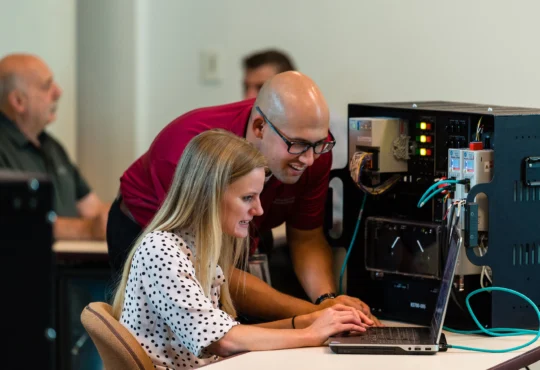
Joy and Mindset Coach Training: How to Build a Purpose-Driven Career Empowering Others
What Joy and Mindset Coaching Really Means
Joy and mindset coaching is more than a profession—it’s a calling to help individuals shift their perspective and create lives filled with meaning and fulfillment. At its core, joy is not the fleeting spark of happiness that comes from external rewards, but a deeper state of inner contentment and alignment with personal values. Mindset, on the other hand, is the lens through which people view the world, shaping the way they respond to challenges and opportunities. When these two elements are brought together, the results can be transformative. Clients often learn to break free from limiting beliefs that have held them back for years and replace them with empowering thought patterns. This combination creates a ripple effect, improving not only their emotional well-being but also their physical health, career path, and relationships. Joy and mindset coach training equips future coaches with the tools to guide others through this process of positive change.
Why Joy and Mindset Coach Training Matters Today
The fast-paced modern world brings unique challenges that make this training more relevant than ever. Stress levels are rising globally, and many people are struggling with burnout, lack of clarity, and constant self-doubt. Traditional approaches to wellness often focus on fixing problems, but coaching rooted in joy and mindset empowers individuals to build from their strengths instead. This perspective is a refreshing alternative for people tired of being defined by their struggles. Joy and mindset coaches provide a safe, supportive environment where clients can learn to reframe their thoughts and build resilience. The demand for this type of coaching is expanding across personal, professional, and organizational spaces. By entering this field, coaches contribute not only to individual transformation but also to healthier communities and workplaces.
Core Principles Taught in Joy and Mindset Coach Training
One of the foundational principles of this training is the science of positivity and neuroplasticity—the brain’s ability to rewire itself through new thought patterns and behaviors. Trainees learn how to teach clients to shift from negative thinking loops into constructive, possibility-focused perspectives. Another principle centers on habit formation, helping clients cultivate daily practices that foster long-term joy. Techniques for uncovering and reframing limiting beliefs are also central, as many people operate with subconscious scripts that prevent them from reaching their full potential. By guiding clients toward awareness and reframing, coaches open doors to empowerment. The program also emphasizes practices for helping individuals replace fear-driven choices with actions grounded in courage and curiosity. Altogether, these principles provide a strong foundation for creating lasting transformation in both the coach’s and client’s lives.
Essential Skills You’ll Gain from Training
Joy and mindset coach training focuses on building both practical and interpersonal skills. Active listening and empathetic communication are emphasized, as they allow coaches to truly understand and connect with their clients. Motivational interviewing and powerful questioning techniques are also developed, enabling future coaches to guide clients to uncover their own solutions rather than offering quick fixes. The training also covers tools for creating client-centered strategies that are realistic and measurable, ensuring progress feels attainable. Another important skill set is learning how to track progress effectively and celebrate even small wins, as this keeps clients motivated. Coaches also gain methods to maintain accountability without creating pressure, striking the right balance between support and challenge. By mastering these skills, graduates of the training are fully prepared to help others achieve meaningful breakthroughs.
Training Formats and Learning Options Available
There are a variety of ways to complete joy and mindset coach training, making it accessible to people with different lifestyles and schedules. Online certification programs are becoming increasingly popular, offering flexibility for learners who need to balance education with work or family responsibilities. Some individuals prefer in-person workshops, which provide a more immersive and interactive experience. Training can be self-paced, allowing learners to progress at their own speed, or structured within group cohorts, which foster community and networking opportunities. Many programs also incorporate mentorship or supervised coaching practice, giving trainees valuable real-world experience. The duration of programs can vary from a few weeks to several months depending on depth and format. Choosing the right structure ensures the learning process aligns with both personal and professional goals.
Career Paths After Joy and Mindset Coach Training
Completing this training opens multiple career possibilities. Many graduates choose to start their own coaching practice, either focusing solely on joy and mindset coaching or combining it with other areas such as wellness, leadership, or life coaching. Others find opportunities working with organizations that want to improve workplace culture and employee well-being. Hosting group workshops, retreats, or online masterclasses is another rewarding path, allowing coaches to reach larger audiences and build a strong presence in the personal development industry. Some coaches specialize further, branching into niches such as stress management, career transitions, or health and wellness coaching. There are also opportunities to collaborate with therapists, educators, and corporate trainers to provide complementary services. This variety ensures that coaches can build careers aligned with their unique strengths and passions while making a real difference in the lives of others.
The Benefits of Becoming a Joy and Mindset Coach
One of the most rewarding aspects of this profession is the personal transformation that often occurs while learning to coach others. Trainees discover how to apply the same tools and practices to their own lives, leading to increased clarity, resilience, and fulfillment. Beyond personal growth, becoming a coach allows individuals to build a flexible career that offers freedom in terms of time, location, and client choice. It also creates opportunities for continuous learning and professional development, as the coaching field is always evolving. The sense of purpose that comes from helping others live more joyful and empowered lives is unmatched. Financial rewards are also available, as demand for certified coaches continues to grow. Overall, joy and mindset coach training provides benefits that extend far beyond career opportunities—it becomes a way of living with intention.
How to Choose the Right Training Program
Selecting the best program requires careful consideration. Accreditation is an important factor, as it ensures the program meets recognized standards of quality and credibility. The curriculum should cover both the science behind joy and mindset and the practical coaching techniques needed to apply it. Instructor experience is another key consideration, as learning from seasoned professionals adds depth and authenticity to the training. Prospective students should also look at the level of community and support offered, since ongoing mentorship can be vital for success. Balancing cost with value is crucial—investing in a program with robust resources often pays off in long-term career opportunities. It’s also wise to ask questions about program format, duration, and post-training support before enrolling. Making an informed choice sets the foundation for a successful and fulfilling coaching journey.
Real-World Impact of Joy and Mindset Coaching
The impact of this coaching extends far beyond individual clients. Many people who go through the process report increased self-confidence, healthier relationships, and a renewed sense of purpose. These positive changes often spill over into families, workplaces, and communities, creating a ripple effect of joy and resilience. Organizations that bring in mindset and joy coaches frequently experience higher employee engagement and reduced burnout. Communities benefit when individuals share tools and practices with others in their circles. The real-world influence of this work demonstrates that joy and mindset coach training is not just a career pathway but also a way to contribute to collective well-being. Every client breakthrough adds to a larger cultural shift toward positivity and empowered living. Coaches who enter this field become catalysts for change in ways that extend beyond their immediate clients.
FAQ
1. How long does joy and mindset coach training usually take?
Most programs range from six weeks to six months depending on the depth, pace, and structure. Some advanced certifications may extend further, especially if mentorship or practicum hours are required.
2. Do I need prior experience in psychology or coaching to start?
No prior experience is required for most programs. Many courses are designed for beginners while still providing value to professionals looking to expand their skills.
3. Can I complete this training entirely online?
Yes, many programs are offered fully online, giving flexibility for those balancing other responsibilities. Some also provide hybrid options with live workshops or group coaching practice.
4. How much can a certified joy and mindset coach typically earn?
Earnings vary depending on specialization, experience, and business model. Many coaches charge hourly rates, package programs, or offer workshops, with the potential to earn a sustainable income.
5. Is certification necessary to practice as a mindset or joy coach?
While not legally required, certification adds credibility, builds client trust, and enhances professional skills. It also makes it easier to market services effectively in a competitive field.









